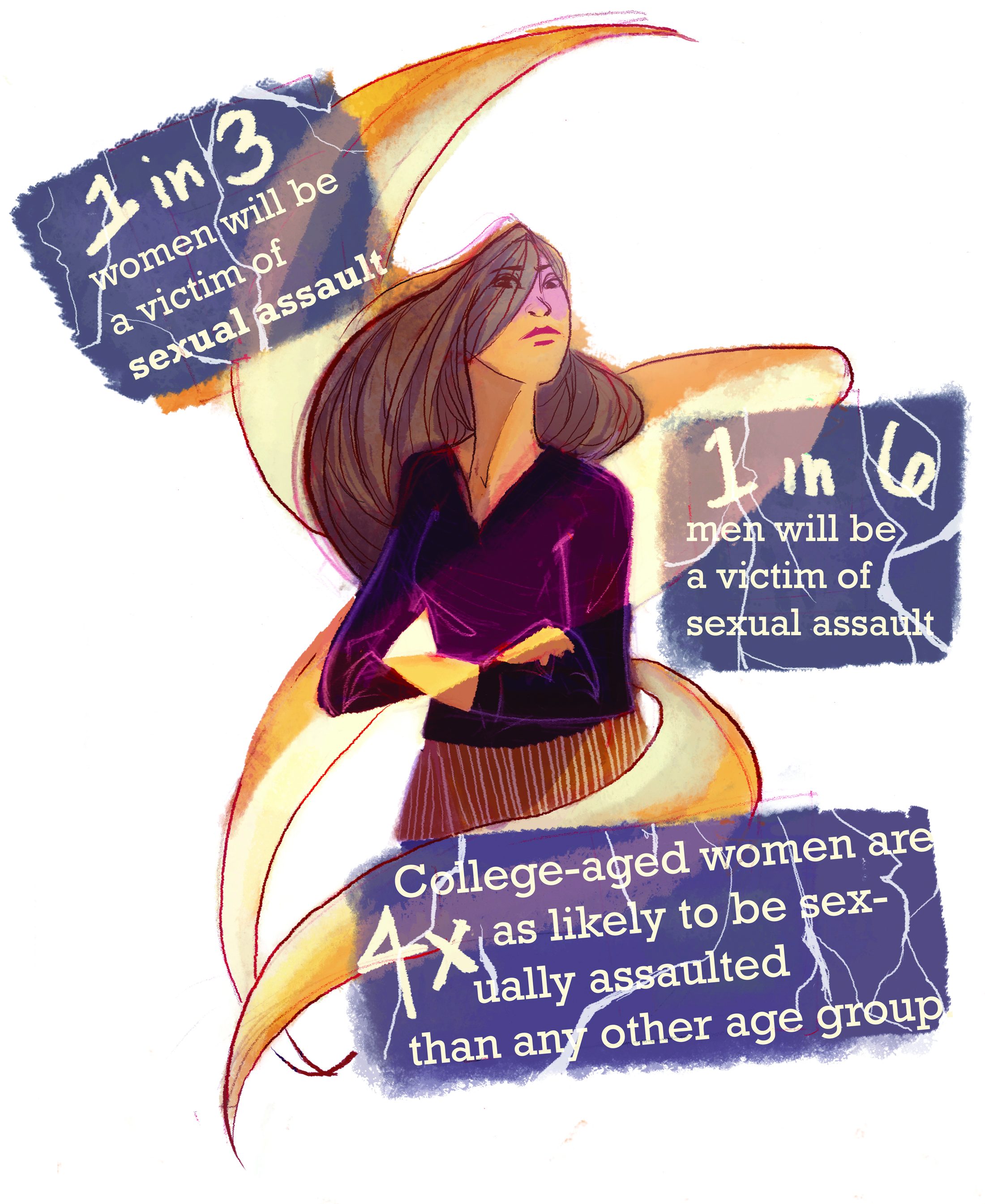UCLA is home to one of the best rape treatment centers in the nation, and has a number of well-organized and well-funded resources for survivors, including psychological counseling and medical care.
But one of the most pressing problems surrounding sexual assault, as shown by plenty of surveys, is that many instances of rape go unreported and accuracy is difficult to gauge. According to the Federal Bureau of Investigation, UCLA has reported the highest number of rapes among California public universities every year since 2008. While it is difficult to know how many rapes actually happen on any campus, any number of rapes is still too high, and it is a matter that needs to be openly discussed.
The administration and police may have the resources needed to counsel, investigate and prosecute, but they cannot provide the support of an involved and caring student body. Survivors of sexual assault are especially vulnerable and often feel guilty or ashamed. Three of the main reasons rape goes unreported are fear of disbelief by peers or police, fear of reprisal from attackers and fear of blame or judgement.
By discussing rape and assault openly and publicly, we can create an understanding and aware environment that will hopefully begin to alleviate the survivors’ reservations about reporting their attackers.
Right now, efforts to address rape mostly fall on administration and the health care system.
The Office of the Dean of Students and university police have numerous avenues through which they handle and follow up on reports of sexual assault, which the U.S. Department of Health and Human Services defines as “anything that forces a person to join in unwanted sexual contact or attention” and includes rape.
UCLA is equipped with nationally recognized services and institutions that provide students with a range of support services, including medical treatment, counseling and legal services. UCLA is also home to the Rape Treatment Center at the Santa Monica UCLA Medical Center, a program that has received special commendation from Congress.
Programs such as Campus Assault Resources and Education run by UCLA Counseling and Psychological Services provide counseling, give students information on how to report to the police and support students in finding alternative housing if need be.
While we may hear about these options from the administration and other UCLA institutions, it is vital for students to hear messages of openness and support from their peers. Estimates indicate that about 54 percent of sexual assaults are not reported to the police, according to the Rape, Abuse and Incest National Network. If more students are taught how to care for, protect and encourage survivors, they can better help friends or fellow students if such an attack were to occur.
The student group best situated to address this issue is the Undergraduate Students Association Council.
Most directly, USAC can use surplus funds to put up signs around campus listing emergency hotlines, organize events specifically highlighting UCLA’s nationally recognized resources and host seminars to educate students on methods of prevention.
Within USAC, the Student Wellness Commission has put forward a new organization called Speak Out and Support, which serves as an extension of the Campus Assault Resources and Education program within UCLA Counseling and Psychological Services.
Speak Out and Support aims to unite student groups and put on programming addressing sexual assault prevention and gender-based violence, said Cassarah Chu, student wellness commissioner and fourth-year communications studies student.
Use of surplus funds to support greater efforts to expand and refine sexual assault programs, whether through Speak Out and Support or otherwise, will provide direct benefits to students unfamiliar with all UCLA has to offer.
On a council-wide level, USAC might allocate surplus funds to set up some form of “no shame campaign.” This would help students understand what actions constitute rape and sexual assault, and encourage victims to not only feel comfortable using campus resources, but to promptly report these crimes.
With every segment of the campus population engaged in the push for a more open discussion, we can begin to create a culture that does not associate guilt and shame with sexual assault.
Email Tashman at atashman@media.ucla.edu.
Send general comments to opinion@media.ucla.edu or tweet us @DBOpinion.
